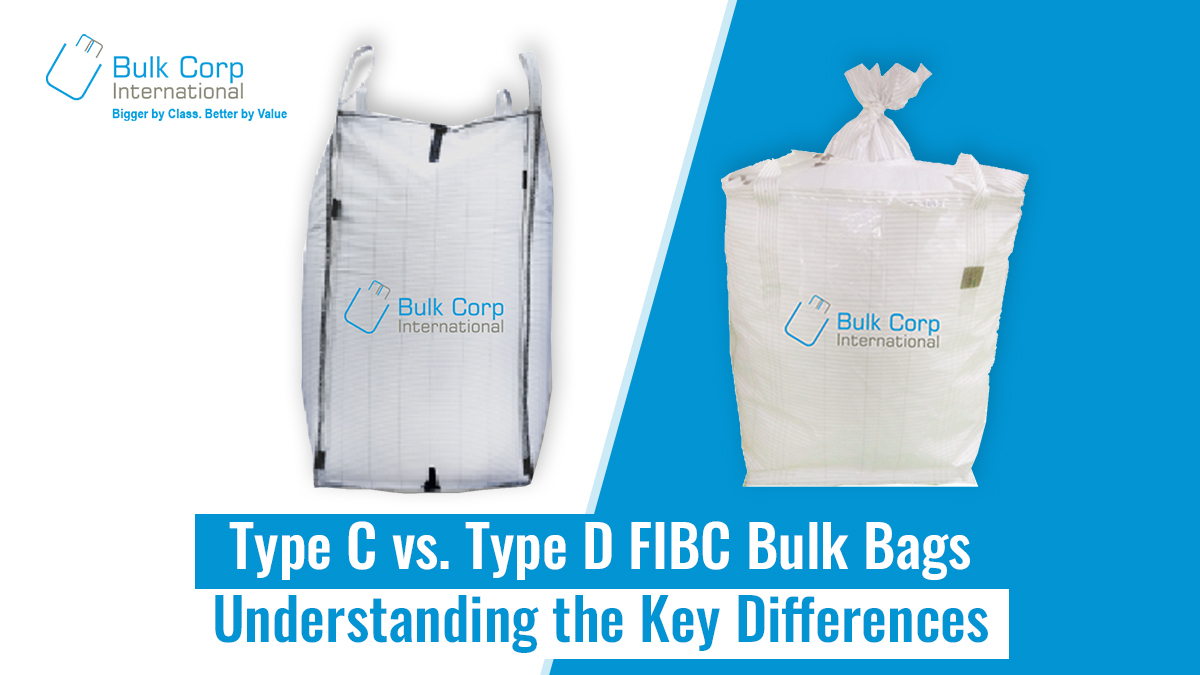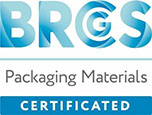Type C vs. Type D FIBC Bulk Bags: Understanding the Key Differences

In the realm of FIBC bulk bags, the classification into different types plays a pivotal role in ensuring safety and compliance, particularly when handling combustible materials. Among the classifications, Type C and Type D FIBC bags stand out, each offering distinct features tailored to address specific challenges associated with static electricity in hazardous environments.
Type C FIBC Bags
1. Conductive Threads
Type C FIBC bags, commonly known as Conductive FIBCs, are woven with conductive threads interwoven in the fabric. This construction provides a path for the dissipation of static electricity, preventing the accumulation of charges on the bag’s surface.
2. Grounding Requirement
One key feature of Type C bags is their requirement for grounding. To effectively dissipate static charges, these bags must be grounded during both the filling and discharging processes. This ensures a controlled discharge of electricity, minimizing the risk of sparks that could ignite flammable substances.
3. Suitable for Flammable Materials
Type C FIBC bags are ideal for environments where flammable gases, liquids, or powders are present. By effectively neutralizing static charges, these bags reduce the risk of electrostatic discharges that could lead to fire or explosions, making them a safety staple in industries dealing with combustible materials.
Type D FIBC Bags
1. Static Protection through Special Fabrics
Unlike Type C bags, Type D FIBC bags, also known as Static Dissipative FIBCs, do not require grounding. Instead, they use special fabrics with inherent static dissipative properties. These fabrics safely dissipate static charges without the need for an external grounding mechanism.
2. Versatility in Handling Flammable Materials
Type D bags offer versatility in handling a wide range of flammable materials. Their static dissipative properties make them suitable for environments where grounding may be challenging or impractical, providing a practical solution for various industrial scenarios.
3. Reduced Grounding Complexity
The absence of a grounding requirement simplifies the handling process for Type D bags. This reduction in complexity not only streamlines operations but also eliminates the potential human error associated with grounding procedures.
| Conductive Bags or Type C | Type D Bags | |
| Fabric | These bags are interwoven with conductive threads interconnected with grounding tabs. | Produced using anti-static, static dissipative fabrics totally preventing sparks or brush discharges without grounding tabs. |
| Grounding | It is crucial to ensure grounding is done properly while filling or discharging the material. | Offers flexibility while filling or discharging, as grounding is not necessary. |
| Human Error | There are possibilities of missing or broken contact with the ground due to human error. | Eliminates the risk associated with human errors. |
| Safety | All the conductive elements needed to be properly ground for utmost safety. | Its anti-static, static dissipative fabric provides full safety to perform any operations. |
Bottom Line
The choice between Type C and Type D FIBC bulk bags hinges on a nuanced understanding of the materials being handled and the operational environment.
Both types offer effective solutions for static electricity management in hazardous settings, and careful consideration of the specific needs of your industry will guide you toward the most suitable choice, ensuring a safe and compliant handling process for combustible materials.
Choose Bulkcorp International for superior static control. Purchasing Type C and Type D FIBC bulk bags will improve the safety of your chemical storage and transportation operations. Bulkcorp is licensed to manufacture Type D Crohmiq FIBC Bags. CROHMIQ is internationally recognized for Type D static protective bulk bag packaging technology. Grounding CROHMIQ is not required, but CROHMIQ can be safely grounded for applications that demand groundable bulk bags. CROHMIQ FIBC are continuously tested in a world-class testing laboratory. Over 20 years of thorough testing by the world’s leading test laboratories has proven the safety of CROHMIQ’s technology. CROHMIQ complies with all the latest National and International safety standards for static protective FIBC. Worldwide technical support is available to all users of CROHMIQ FIBC.





